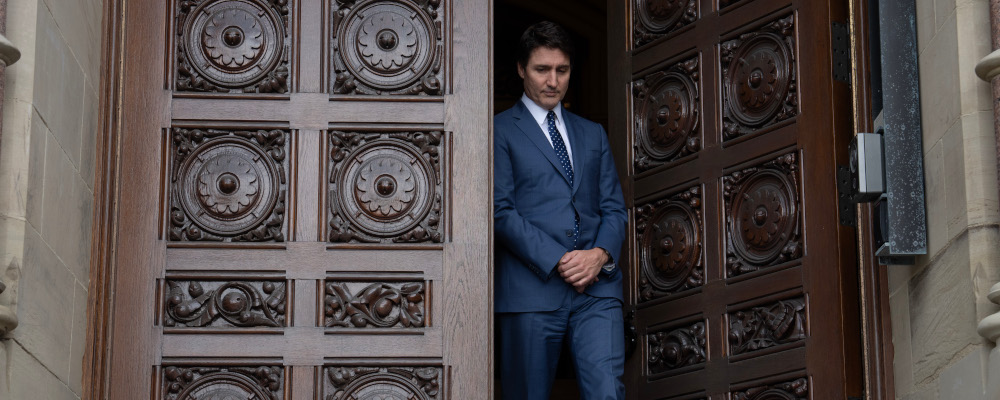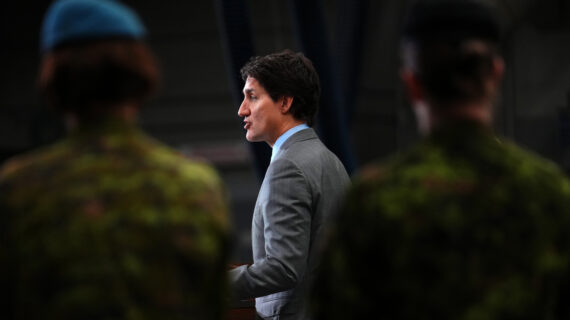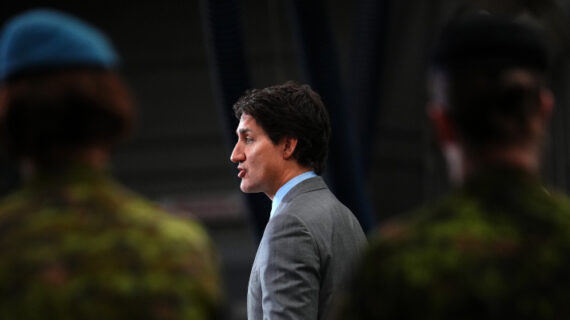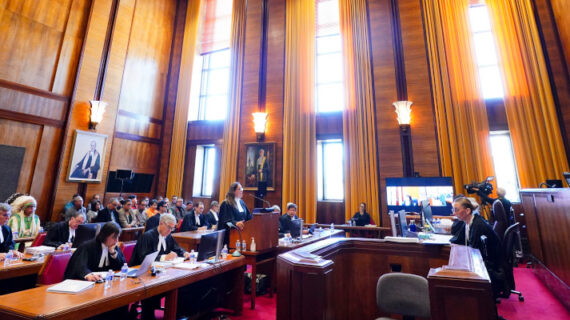Justin Trudeau provided testimony on Wednesday to the Foreign Interference Commission as part of the national public inquiry into foreign interference in Canada’s elections. Parts of his testimony concerned if and to what extent he had been briefed on matters related to the meddling. The Hub’s editor-at-large Sean Speer exchanged with Ian Brodie, the former chief of staff to Prime Minister Stephen Harper, to get an insider’s perspective on the ins and outs of briefing a prime minister. You can find more of Brodie’s commentary and other writings at his Substack here.
SEAN SPEER: As a general rule, the prime minister seems to have suggested that he doesn’t rely on written briefs. He and his office instead typically use oral briefings including for (but not limited to) intelligence and national security matters. My experience with Prime Minister Harper is that he received approximately ten written briefing notes from PMO staff and the Privy Council Office each day. Is that consistent with your own experience, and if so, what do you think is lost by minimizing the use of written briefs?
IAN BRODIE: It’s true, different prime ministers get their briefings in different ways. Mr. Trump responded to “killer graphics” as his CIA director said. In 2006, civil servants had to get used to Mr. Harper reading a lot of long, detailed written notes. Mr. Chretien liked short notes, to the point. Mr. Harper liked more background material. He got so many notes about the 2007 equalization reform, they filled an entire drawer of a filing cabinet! I really looked forward to days when we only got ten briefing notes from PCO.
Written notes had a big advantage. Mr. Harper initialized every note that he read. We knew the date he received every note and the date he returned it for filing. There was never any doubt about what he’d been briefed and when it had been briefed.
Oral briefings are fine, but you need a notetaker to record what was said. With really critical information, I prefer to have a paper trail. Plus, if the PM reads the preliminary material ahead of time, the briefing is more productive.

SEAN SPEER: With respect to specific intelligence briefing notes, the prime minister said that while he reads them when he can, he instead expects advisers to tell him if there’s something important. How does that approach converge or diverge with your experience as the prime minister’s chief of staff?
IAN BRODIE: Every PM relies on others to decide what he needs to see or hear. The fact Mr. Harper read a lot of written briefings every day meant you could send a lot of material his way. In my day, the clerk of the Privy Council had direct access with written notes and verbal briefings. So did I and several PMO staffers. Cabinet ministers, too. That meant there were fewer points of failure. It was rare for a single person to overlook something and leave the PM out of the loop.
But, nothing lifts the burden of accountability from the PM. He appoints people to make sure he knows what he needs to know. I am sure that several people said “Hey, the PM needs to know that China is working hard to get this guy elected as a Liberal,” or “Hey, the Chinese might be threatening an MP’s family because of a vote he took in the House of Commons.” In the case of Michael Chong, I expect he was briefed about threats to the Chong family. I still don’t understand why he didn’t instruct someone to check on Chong’s family, report back to him, and then let Chong know what was going on.
SEAN SPEER: What was Prime Minister Harper’s normal process for consuming national security and intelligence information? Did he have dedicated time each week? Did it typically come in the form of written briefs or oral briefings?
IAN BRODIE: That changed over time. The process became more formal after I left the government. He got a weekly written briefing from the intelligence assessments section at PCO. His various national security advisors would also brief. I visited the main intelligence agencies to make sure we were getting all the right information from them.
SEAN SPEER: In addition to being a chief of staff, you’ve been involved in leadership races and party nominations. The Liberal Party doesn’t prohibit non-residents from participating in its internal voting. The prime minister said that that’s intentional to “encourage wide participation in nomination races.” What are the risks in your mind to such a party policy?
IAN BRODIE: Governments should let political parties govern themselves as they see fit.
Back in 2006-07, we had informal discussions with the opposition parties about requiring proof of citizenship to vote in a federal election. They were opposed. We couldn’t even get an agreement to require photo ID at the ballot box.
Without a photo ID requirement, it’s hard to enforce a citizenship requirement, even when you set one as my party does.
Remember, in the Conservative Party, we let youth members vote even if they aren’t yet old enough to vote in a general election. Every party has wider rules for internal votes than the Elections Act does for general elections.
However, I personally think allowing non-citizens to vote in a party nomination or leadership election is very risky. They are vulnerable to all sorts of threats, as we have seen at the inquiry. Political parties pick the candidates we get to vote for at election time and pick the leaders of the parties that could become prime minister. To my mind, the qualifications to vote in nomination and leadership races should be the same as the qualifications to vote in a general election. Maybe we should have slightly wider rules for a riding board of directors. But when a party is picking candidates and leaders, that should be a tight process.




